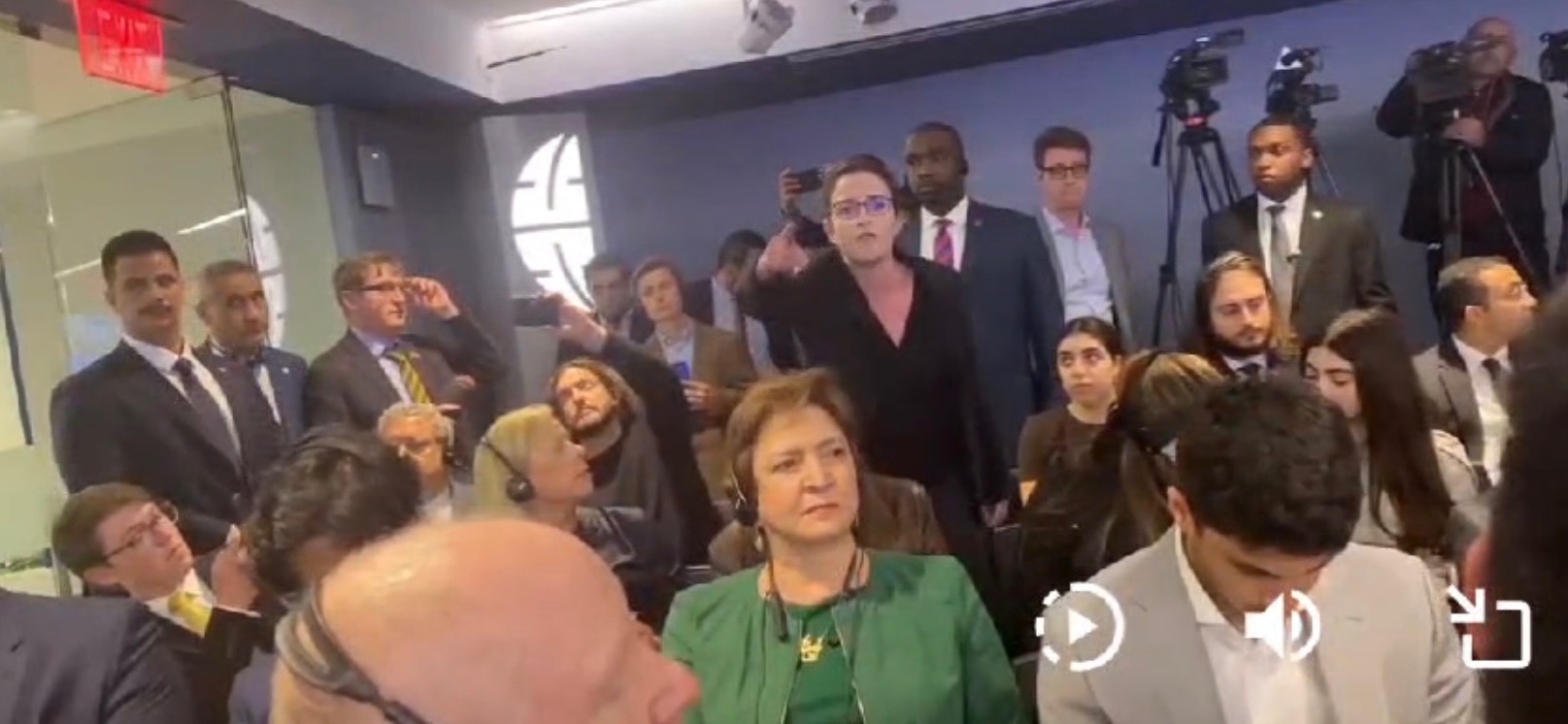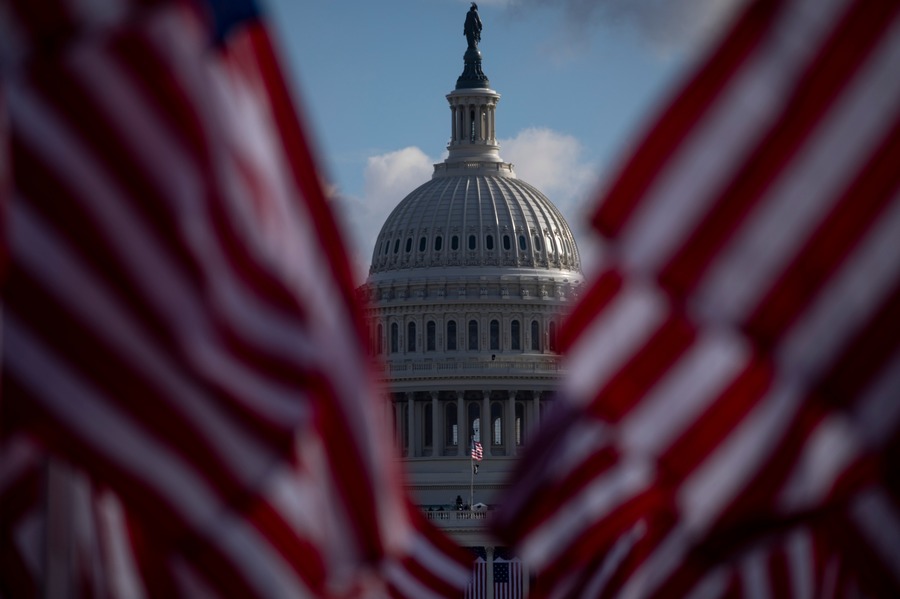The Situation: An Uncomfortable Truth About Elizabeth Tsurkov’s Freedom
Donald Trump deserves credit.

The Situation on Thursday commented on the visible decay in the FBI’s investigative performance.
Today, I want to—unironically and with perfect sincerity—offer praise and thanks to President Trump.
Praising the Dear Leader is admittedly not common fare for this column, the very name of which—“The Situation”—refers to the crisis created by his presidency.
Yet I am convinced that Trump deserves real credit for the freedom of Elizabeth Tsurkov, the Princeton graduate student held hostage by Kataeb Hezbollah—an Iranian proxy militia in Iraq—for the past two and half years.
More important than my conviction on this subject, Elizabeth’s sister—Emma Tsurkov—is emphatic on the point. She and I have been texting over the past few days, and there are important lessons in the story she tells about how Elizabeth came to be free.
I still don’t know the precise details regarding the circumstances of Elizabeth’s release last week. It is clear to me, however, that one way or another, Trump’s role—along with that of his hostage envoy, Adam Boehler—was decisive. That is not a comfortable thing for me to say. I don’t relish giving Trump credit for anything. But he got this one right, and he did it in a fashion that should embarrass the previous administration.
The result is that someone I care about is alive and back with her family today. It would not be honest of me not to reckon with that.
Elizabeth’s release happened all of a sudden—really suddenly.
I know this because I was supposed to have dinner with Emma and her other sister, Avital, Tuesday evening, and as late as 2:07 p.m. that afternoon, Emma and I were still making arrangements as though dinner were happening. There was no indication that the dinner might not take place because of some imminent breakthrough. By 4:30 p.m., however, Trump had announced on Truth Social that Elizabeth was free and at the U.S. Embassy in Baghdad.
In the immediate aftermath of her release, a variety of press stories suggested that she had been freed as part of some kind of deal. The Iranian Tasnim news agency, for example, reported that Israel had freed two prisoners in exchange for Elizabeth—something the prisoners’ families deny. Other media suggested it was in exchange for U.S. troops leaving Iraq.
But this, Emma tells me, is false. “There was no deal. Nothing was given in exchange.”
The Saudi news organization, Asharq Al-Aswat, supports this claim, as does the Times of Israel, which reported:
On [Sept. 6], Trump signed an executive order empowering the secretary of state to classify countries as carrying out “arbitrary detentions” or “unlawful kidnappings.” Such a designation would allow Washington to impose sanctions, export restrictions and travel bans.
White House briefings indicated that the first countries likely to be listed are China, Iran and Afghanistan, while no details were provided regarding Russia. The model resembles the State Department’s designation of state sponsors of terrorism.
In Tsurkov’s case, the implicit threat that Iraq might be designated a country that engages in arbitrary detentions or unlawful abductions appears to have provided the final impetus for her release.
The executive order in question is available here.
Emma offers a still-more-dramatic version of the story. “It was just the purest form of political power,” she said in a note. “The U.S. demanded it, and [holding Elizabeth] became a liability, rather than an asset.”
What threat did the Trump administration wield, I asked? The “use of military power against the militia,” she responded bluntly.
Whether Emma’s account or the newspapers’ proves correct—or whether the truth involves some combination of the two—the key reality appears to be that Elizabeth is free today because of a very blunt deployment on Trump’s part of raw American power. For the year and half I have known Emma, she has been stressing to anyone who would listen that Khatib Hezbollah is a part of the Iraqi government and that American pressure on Iraqi Prime Minister Mohammed Shia' al-Sudani was the key to her release. This is why I worked with Emma and her other siblings to project “Free Elizabeth Tsurkov” on the Willard Hotel in Washington while the prime minister was staying there. She always believed pressure on the prime minister was the key.
And on this point, she appears to have been right. All the pressure, she tells me, was exerted against the Iraqi prime minister, who then handled the internal politics and machinations. And what’s more, Emma tells me, “Elizabeth’s captors and those who tortured her, were all Iraqi government employees.”
Emma’s lesson from all of this is that all of the puzzle pieces necessary for Elizabeth’s release were present two and half years ago. “We didn’t have to wait for Trump”—by which she means that Elizabeth and her family shouldn’t have had to wait for Trump.
There are lessons here, uncomfortable lessons but ones we should not ignore. The first is that Trump’s bullheadedly ignorant approach to dealing with problems—while often reckless and dangerous and heedless of important complexities—every now and then can cut through the layers of nonsense that more sophisticated people smear on top of problems.
The Biden administration, full of Middle East experts, looked at Khatib Hezbollah and saw a permanent fixture of the Iraqi political scene, even though it was attacking U.S. troops. They looked at it as a political group that one had to manage as part of the tapestry of Iraqi politics. They saw Elizabeth Tsurkov as an Israeli academic in whom the U.S. had only a passing interest. And so it repeatedly expressed concern and did little else. I can’t tell you how many times I had dinner with Emma or texted with her while she tried to fathom how to get the administration more interested—or more interested in being aggressive.
And then Trump came in. And in a simplistic way, he and his people saw the matter differently. Khatib Hezbollah threatens U.S. troops and interests. And it’s just a bunch of criminals, dressed up as a political movement allied with Iran but ultimately in the hostage taking business. And Elizabeth may not be American, but with robust use of American power, the United States can dry up the hostage taking business. Because these guys don’t actually want to die. And the prime minister of Iraq needs American support and ultimately can make holding a Princeton graduate student more of a pain in the ass than an asset—if you lean on him hard enough.
And yes, these same blunt coercive instruments exercised with minimal regional sophistication are devastatingly damaging to U.S. interests when applied against the wrong side in the Ukraine war or when applied worldwide with respect to tariffs. And yes, it’s infuriating that Russia does not seem to be among the Trump administration’s targets in its war on kidnapping.
But today, I am just thankful for the unsophisticated blunderbuss approach as applied to this problem this time. I am thankful for the refusal to get hung up on complex regional dynamics.
I’m thankful for the exercise of raw power.
And I’m content for this column to return to its regularly scheduled programming, when The Situation continues tomorrow.





